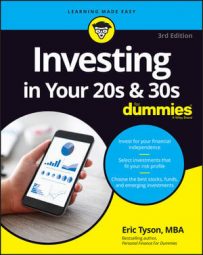You greatly minimize your chances of making significant investment blunders, including hiring an incompetent or unethical advisor. You might be tempted, for example, to retain the services of an advisor who claims that he and his firm can predict the future economic environment and position your portfolio to take advantage. But financial advisors don’t have crystal balls and that you should steer clear of folks who purport to be able jump into and out of investments based upon their forecasts.
Finding a competent and objective financial advisor isn’t easy. Historically, most financial consultants work on commission, and the promise of that commission can cloud their judgment. Among the minority of fee-based advisors, almost all manage money, which creates other conflicts of interest. The more money you give them to invest and manage, the more money these advisors make. Seek financial (and tax) advice from advisors who sell their time (on an hourly basis) and don’t sell anything else.
Because investment decisions are a critical part of financial planning, take note of the fact that the most common designations of educational training among professional money managers are MBA (master of business administration) and CFA (chartered financial analyst). Financial planners often have the CFP (certified financial planner) credential, and some tax advisors who work on an hourly basis have the PFS (personal financial specialist) credential.Advisors who provide investment advice and oversee at least $100 million must register with the U.S. Securities and Exchange Commission (SEC); otherwise, they generally register with the state that they make their principal place of business. They must file Form ADV, otherwise known as the Uniform Application for Investment Adviser Registration. This lengthy document asks investment advisors to provide in a uniform format such details as a breakdown of where their income comes from, their education and employment history, the types of securities the advisory firm recommends, and the advisor’s fee schedule.
You can ask the advisor to send you a copy of his Form ADV. You can also find out whether the advisor is registered and whether he has a track record of problems by calling the SEC at 800-732-0330 or by visiting its website. Many states require the registration of financial advisors, so you should also contact the department that oversees advisors in your state. Visit the North American Securities Administrators Association’s website and click the Contact Your Regulator link on the home page.
